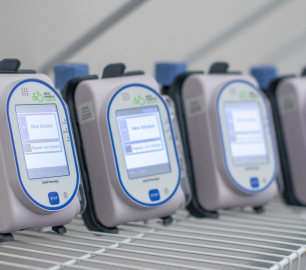Numerous industries across the United States are experiencing labor shortages and a lack of qualified employees. For healthcare, this shortage could have wide-reaching and even dangerous consequences.
Statistics on Healthcare Workforce Labor Shortages
According to consulting firm Mercer’s U.S. Healthcare Labor Market Analysis, the nation will see “critical workforce gaps” by the year 2025. This shortage will include:
- 446,300 home health aides
- 95,000 nursing assistants
- 98,700 medical and lab technicians and technologists
- 29,400 nurse practitioners
Several factors contribute to this impending shortage, including a more robust economy that gives health workers more job opportunities. Organizations may offer appealing salaries and benefits to attract workers, but there are concerns that the costs of employee wages will cut into revenue or be passed on to consumers.
Lack of qualified workers is another major factor in the healthcare labor shortage. Many applicants for skilled jobs, such as nursing, do not have skills or experience that match job openings. Medical school acceptance rates have also declined, which could lead to fewer qualified physicians in the coming years.
A less surprising contribution to the labor shortage is the aging population. An older population has driven demand for healthcare services. At the same time, qualified professionals are retiring and leaving the workforce.
Consequences of Labor Shortages in Healthcare
Both patients and providers could suffer from the lack of sufficient team members.
- Health could suffer in rural communities. It is already difficult to recruit doctors and nurses to more remote areas, or to find qualified workers among smaller rural populations. Further labor shortages could worsen the existing health disparities in rural populations compared with urban or suburban areas.
- Provider burnout could increase. Taking on more patients will make burnout an even bigger issue for healthcare workers. This leads to greater stress, lower morale, and higher turnover.
- Risk of medical errors may increase. Fatigue from heavy workloads could increase the risk of medical errors. Fewer team members also may mean fewer people to catch mistakes.
- Patient care could suffer. Facilities may struggle to provide appropriate resources and levels of care for more patients. As nurses, physicians, and other health workers become overworked, this may compromise quality of care and increase patient wait times.
How to Counteract the Healthcare Labor Shortage
Many health organizations will witness the consequences of this labor shortage. The right strategies, however, can help minimize the impact.
- Look to non-traditional sources for team members, especially front-line employees. For example, this may include individuals with long-term unemployment histories.
- Provide training to workers with related, non-health experience. For example, manufacturing workers could be trained to be lab technicians, and retail employees could be trained as home-health aides.
- Offer better incentives. Some organizations are providing bigger signing bonuses, tuition reimbursement, and free housing for nurses to attract new hires. Wellness programs and flexible hours are other possible incentives.
- Rethink existing roles and advancement paths. Provide additional training and new advancement opportunities to staff members, such as medical assistants. When front-line team members have better opportunities for advancement, it can positively impact the overall team.
- Collaborate to find and keep staff members. Partnering with other providers and facilities, as well as staffing agencies and hiring professionals, can help you hire the right team members.
A variety of factors have contributed to the healthcare labor shortage, so providers and other stakeholders must use several different strategies to alleviate the issue.
About Right Way Medical
Right Way Medical provides supply, logistic, technology, biomedical and financing solutions to alternate site, long-term care and specialty pharmacy healthcare providers through an innovative suite of products and services combined with the highest level of customer service. Founded in 2014, Right Way Medical has become a trusted name in the infusion industry, and focuses everyday to continue to earn that trust and provide its customers with the ideal experience in acquiring healthcare related products and service.
Contact us today to talk about how you can get started with our service and financing options.



